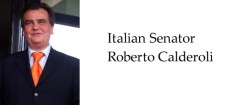ITALY CHRONICLES
Latest Posts
The Barrista’s Bible – Espresso Coffee 2013: Tools, Techniques and Theory
1996 edition comments Excellent resource for coffee professionals and beginners. Most Practical Espresso book in the Market What a fantastic book for the experienced and
The Best Luxury Hotels in Milan
Maybe you are planning a long weekend or even planning to spend a week in Milan shopping to your hearts content. If so, then here
The Ten Most Amazing Hotels in Italy
What are the most amazing hotels in Italy? More importantly, where are they? I asked Italy Chronicles readers via @newsfromitaly on Twitter and with their responses,
Berlusconi Needs More Party Money
Poor old Silvio Berlusconi. His Forza Italia party got a drubbing in the recent European elections and, on top of this, his personal party is
The Top Ten Mid-Range Family Friendly Hotels in Milan, Italy – May 2014
With every year that passes, Italy’s northern city is becoming ever more popular as a tourist destination. This also means lots of visitors are sampling
The Best Luxury Hotels in Milan
Maybe you are planning a long weekend or even planning
The Ten Most Amazing Hotels in Italy
What are the most amazing hotels in Italy? More importantly,
Berlusconi Needs More Party Money
Poor old Silvio Berlusconi. His Forza Italia party got a
The Top Ten Mid-Range Family Friendly Hotels in Milan, Italy – May 2014
With every year that passes, Italy’s northern city is becoming
Italy

Italian Rogue of the Week: Roberto Calderoli
If you have not heard, Italian senator and Lega Nord politcian Roberto Calderoli caused a scandal this week in Italy after likening to Italy’s black

New Italian Cheese – Buffalo Milk Gorgonzola
If you like Gorgonzola and buffalo milk Mozzarella cheeses, you’ll probably like a new cheese called Baffalo Blu. This cheese is made with buffalo milk
An Interesting Car Month in Milan.
First, I caught sight of a very sleek matt-black Maserati down in the centre, only to learn afterwards that it is one of a kind
Italy’s Farcical New Plastic Law
From yesterday Italy’s shops, plumbers, dentists, doctors, and others have to arm themselves with what Italy likes to refer to as POSs. Actually, they don’t
Saturday night’s all right for…….
….working! Yes, that’s right. I’m working. Other half and little one have gone off down to Genova. This means that I can get on with
How to Profit from 1 Euro Houses with Airbnb in Italy
Understanding 1 Euro Houses in Italy Unearth the potential of 1 euro houses in Italy. Invest in these affordable properties and turn them into profitable

Italy’s Mozzarella Cheese May Be Contaminated
Article amended to reflect conversation with investigating magistrate.
Today on Italian food news site NewsFood.com an article stated that 70% of Italy’s mozzarella cheese is contaminated by bacteria. The truth is that it’s too early to make such a claim – as the 70% really refers to mozzarella tested, not all of the mozzarella in Italy.
Still, while most of the bacteria in question found is not harmful, some is.
Sofia Loren: Italy’s Timeless Icon of the Silver Screen
Sofia Loren, the renowned Italian actress, has captivated audiences around
Properties
House For Sale near Milan
Gaetano Salvo, friend and Blog from Italy researcher wants to sell his house. For those who might be interested, or may know of someone or

How to Find Property for Rent in Italy
Maybe you are coming to Italy to work or study here for a while, in which case, you’ll need somewhere to live. If that’s the

The Admirable Admiral’s Villa in Taormina
If you know your history pretty well, you may be aware that one of England’s most celebrated Admirals possessed a rather charming villa in the scenic Sicilian town of Taormina.
House For Sale near Milan
Gaetano Salvo, friend and Blog from Italy researcher wants to sell his house. For those who might be interested, or may know of someone or

The Admirable Admiral’s Villa in Taormina
If you know your history pretty well, you may be aware that one of England’s most celebrated Admirals possessed a rather charming villa in the scenic Sicilian town of Taormina.
Places to stay in Italy
Baur Bed and Breakfast, Acqui Terme, Piedmont
“You may have the universe if I may have Italy.“ – Giuseppe Verdi (1813-1901) Is the quotation which greets you when you visit the Baur B&B website, demonstrating how enchanting the owners find Italy.
Casa Villatalla B&B, Liguria
By far the most important members of the Casa Villatalla household are Nellie (an elderly but loveable chocolate Labrador), Bonnie, a fluffy and rather scatty American Spaniel, and Pickle, aneccentric cat who walks like John Wayne.
Hunting Expat Bed and Breakfasts
There are now twelve posts about expat run bed and breakfasts on Blog from Italy. I’m hoping to add more in 2009, but finding these bed and breakfasts on line is not all that easy and the Italian Tourist Board does not seem to be helping matters either.
Hunting Expat Bed and Breakfasts
There are now twelve posts about expat run bed and breakfasts on Blog from Italy. I’m hoping to add more in 2009, but finding these bed and breakfasts on line is not all that easy and the Italian Tourist Board does not seem to be helping matters either.
Casa Villatalla B&B, Liguria
By far the most important members of the Casa Villatalla household are Nellie (an elderly but loveable chocolate Labrador), Bonnie, a fluffy and rather scatty American Spaniel, and Pickle, aneccentric cat who walks like John Wayne.

